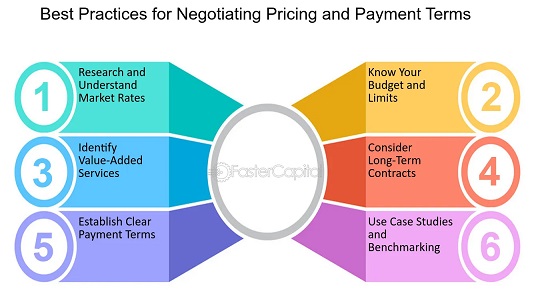Vacations are an essential part of our lives, and we all look forward to taking a break from the daily grind. Long-term vacation contracts, also known as timeshare contracts, are agreements between individuals and property developers that allow the individual to use a particular property for a specified period each year.
While these contracts can provide a lifetime of memorable vacations, they can also be challenging to terminate. In this guide, we will explore the process of exiting a long-term vacation contract.
Understanding Long-Term Vacation Contracts
Before discussing the exit process, it is crucial to understand what a long-term vacation contract entails. These contracts typically involve paying upfront for the right to use a specific property for a certain amount of time each year, usually for several years. In return, the individual can enjoy a holiday at the property during their designated time.
These contracts often come with strict terms and conditions, including maintenance fees and restrictions on when and how long an individual can use the property. These agreements also often include clauses that make it difficult to terminate the contract.
Reasons for Exiting a Long-Term Vacation Contract
There are various reasons why someone may want to exit a long-term vacation contract. The most common ones include financial difficulties, health concerns, or simply not being able to use the property as much as initially anticipated.
In some cases, individuals may also find that the property does not meet their expectations or that they have been misled during the purchase process. Whatever the reason may be, exiting a long-term vacation contract can be a complicated and lengthy process.
Exploring the Exit Process
The exit process for long-term vacation contracts may vary depending on several factors such as the terms of the agreement, the property location, and local laws. However, there are several general steps that individuals can take to terminate their contract:
1. Review the Contract
The first step in exiting a long-term vacation contract is to review the agreement thoroughly. This includes understanding the terms and conditions, any applicable fees, and the process for termination.
2. Contact the Property Developer
Once you have reviewed the contract, you can reach out to the property developer or management company to discuss your options for terminating the contract. Some developers may offer a buy-back program or allow you to transfer the contract to another individual.
3. Seek Legal Advice
If you are unable to come to an agreement with the property developer, it may be time to seek legal advice. A lawyer who specializes in timeshare cancellation can provide vital assistance in understanding the intricacies of your contract and the legal remedies available to you. Their expertise can be especially valuable if the contract contains complex clauses and the exit process involves navigating through challenging legal procedures.
4. Consider Third-Party Exit Companies
It is also worth considering third-party exit companies that specialize in helping individuals terminate long-term vacation contracts. These companies can provide guidance and support throughout the entire process and may have experience dealing with various property developers.
Preparing for a Smooth Exit
Exiting a long-term vacation contract can be a lengthy and challenging process, but there are steps you can take to make it smoother:
- Keep detailed records of all communication with the property developer or management company.
- Understand the timeline and deadlines for termination as outlined in your contract.
- Be prepared to negotiate and consider all options before making a decision.
- Seek advice from experts and do your research before taking any action.
Conclusion
Long-term vacation contracts can provide a lifetime of cherished memories, but it is essential to understand the terms and conditions and the exit process before signing an agreement. If you find yourself needing to terminate a contract, remember to review your contract, seek legal advice if necessary, and consider all options before making a decision. With proper preparation and knowledge, you can navigate the exit process and move on to new vacation adventures.
So pack your bags and get ready for your next dream getaway! No matter what happens, always remember that taking some time away from everyday life is essential for our well-being, and with the right planning, it can be stress-free and enjoyable.
